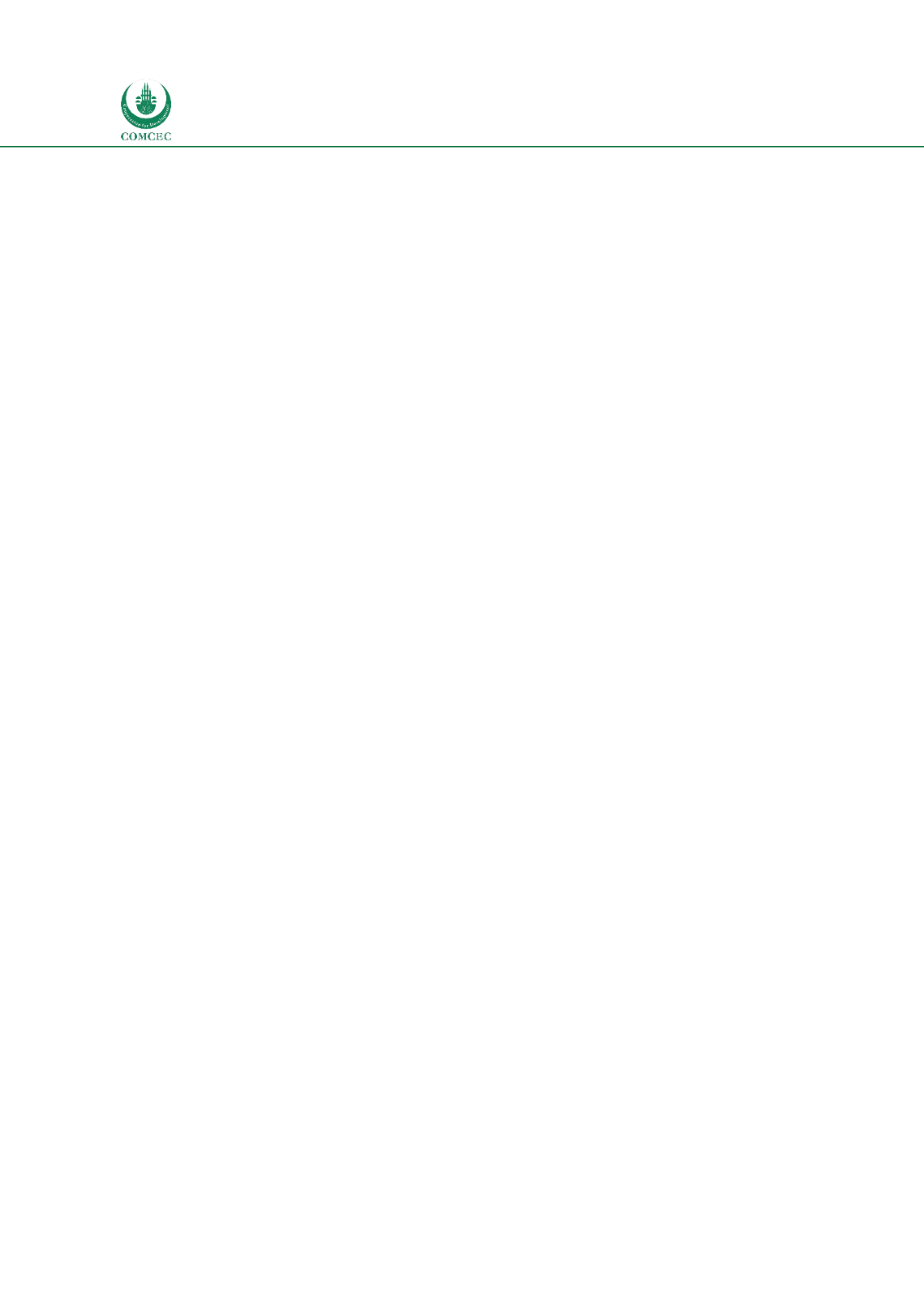

National and Global Islamic Financial Architecture:
Problems and Possible Solutions for the OIC Member Countries
78
4.3.6. Consumer Protection Architecture
Consumer Protection and Financial Literacy
Article 30, OJK Act 2011 stipulates that the regulator OJK has to enforce certain rules to protect
consumers and the public in relation to financial transactions. Specific issues that are
addressed include requiring financial institutions to have systems to address consumer
complaints and instituting financial compensation from the prejudiced party to cover
consumer losses. In line with the OJK, the central bank takes a role in protecting consumers in
the payment system. Particularly, article 3 of the Bank Indonesia Regulation Number
16/1/PBI/2014 declares BI protections on consumer fairness, transparency, consumer data
and information and, solving consumer complaints in dealing with the payment system (Bank
Indonesia, 2014). Moreover, BI and OJK have integrated and coordinated financially literacy
programs for the public called “Let’s save in banks” (lakupandai). Furthermore, Bank
Indonesia, specifically, applies a financial inclusion program tobring financial institution
services to all people. The consumer protection framework is common for both conventional
and Islamic financial sectors.
Deposit Insurance
The Indonesian Deposit Insurance Corporation (LPS) is the only deposit guarantor for banks in
the country. According to LPS Act Number 24, 2004 (Republic of Indonesia, 2004a) and
government regulation related to the LPS Act, the LPS is mandated to be the guarantor of
depositor funds in banks and to maintain banking system stability. Accordingly, LPS
determines deposit guarantee policies, arranges deposit guarantees, and also deals with the
resolution of failing banks (article 4 and 5). Given its mandate, LPS collects bank insurance
premiums, collects data and information on banks (balance sheet, depositors funds, etc.), pays
the claims, and resolves the failing bank (article 6). As such, all banks in Indonesia are objects
of the depositor guarantee mechanism through LPS. Each bank needs to pay LPS a contribution
and insurance premium (two times a year) and must give the required bank documents, data
and information to LPS (article 12). While all banks in the country are required to be a part of
the deposit insurance scheme, there is no specific program for Islamic banks.
4.3.7. Human Capital and Knowledge Development Framework
There are at least three nationwide and independent nonprofit organizations that are fully
dedicated to accelerating the development of Islamic finance and improve the quality of Islamic
human capital. Firstly, the Islamic Economic Society (MES), was established in 2001 has with
the goal of educating and familiarizing people with Islamic finance (MES, 2015). MES has
hundreds of executive board members with high profile professionals that include the
Chairman of the regulatory body OJK as the current head, the Governing Board chaired by the
Chairman of the National Ulama Council (MUI), and the Board of Experts headed by a former
Minister of state owned enterprises. MES has 28 committees covering awqaf, human
development, public education, takaful, technology, etc. Financially supported by industry
players (banking, nonbanks and social institutions), MES organizes many seminars,
conferences, public hearings, and discussions on Islamic finance, economics and banking.
Secondly, the Indonesian Islamic Economics Experts (IAEI), established in 2004, is chaired by
the current Minister of Finance and the former Director General of IRTI-IDB (IAEI, 2015).
















